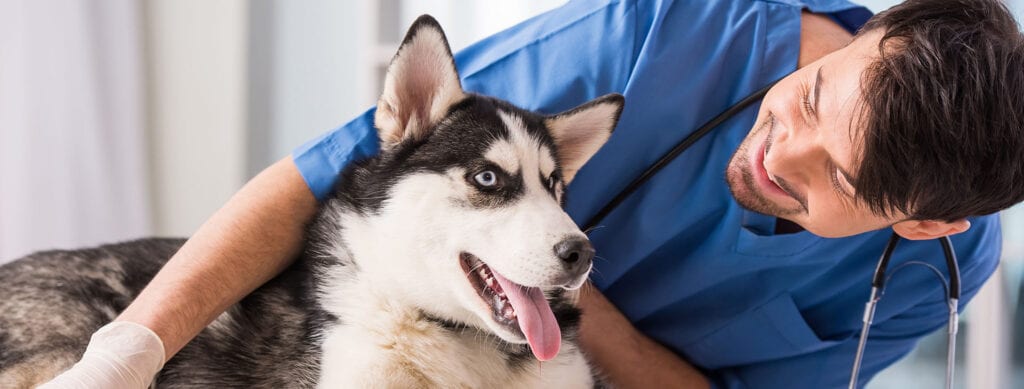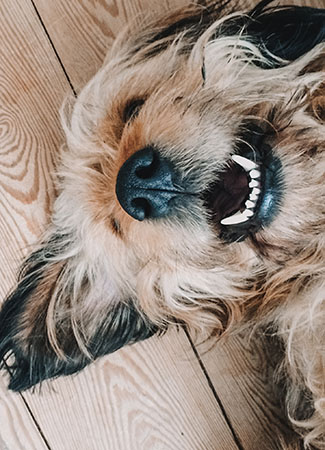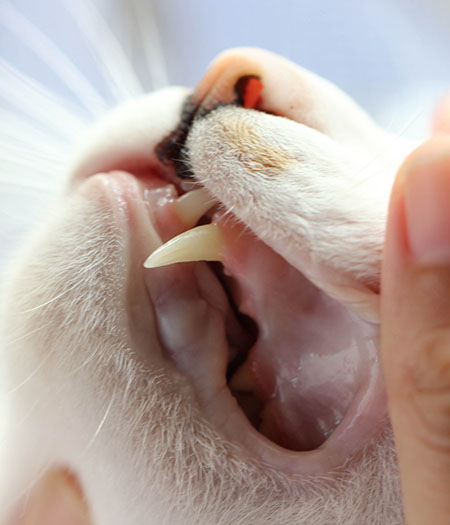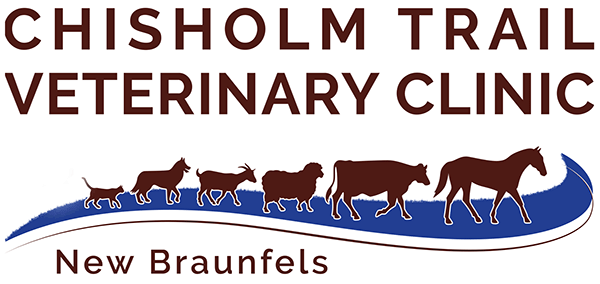Veterinary Dental Care in New Braunfels, TX
Chisholm Trail Veterinary Clinic of New Braunfels is proud to provide veterinary dental care for all of our patients. Often conducted as annual cleanings, dental care can help protect your pet from painful infections and fight diseases that can ultimately affect their organs. Give your pet an extra safeguard by utilising our top-notch dental care services.

PERIODONTITIS: NOT JUST BAD BREATH
Many pet owners know that periodontitis gives pets bad breath, but when escalated, it can lead to heart disease and bacterial infections.
We recommend utilizing the following three steps to avoid periodontitis:
- Regular home brushing
- Professional teeth cleanings
- Healthy food choices
As part of our well-rounded dental care protocol, our veterinarians at Chisholm Trail Veterinary Clinic of New Braunfels offers:
- Dental exams. A dental exam helps our veterinarians visually identify any disease, broken teeth, or pain that requires further investigating.
- Dental cleanings. Done during anesthesia, our veterinarians scale your pet’s teeth to remove plaque, scale gums, and get a detailed picture of your pet’s dental health
- Tooth extractions. If, during the cleaning, we identify any broken or infected teeth, we’ll extract to avoid further complications and provide pain management prescriptions if necessary.
- Periodontitis treatment. If detected early during the exam or cleaning, our veterinarians will advise on a reversal process with treatments and a home care plan.
PREVENT DENTAL DISEASE IN YOUR PET TODAY.
GUM DISEASE IN CATS AND DOGS
Many pet owners know that bad breath can be a sign of dental issues. Other, less-known symptoms to look for include:
- Unable to hold onto food
- Irritability, sleeping more often, and not wanting to play
- Blood-tinged saliva
- Pawing and rubbing at mouth
- Yellow/brown residue along the gum line
- Inflamed gums
- Drooling excessively and often
DIAGNOSING AND TREATING PET DENTAL DISEASE
The majority of pets can develop dental diseases by age 2. Our veterinary clinic aims to defy this statistic by educating pet owners about the importance of preventive dental care.
With any infected gum tissue, pets are left uncomfortable, unable to eat properly, and are often at a higher risk for organ diseases of the heart, liver, and kidneys.
When your pet’s teeth are cleaned at our practice, we:
- Fully sedate the patient to properly examine the pet’s mouth in detail
- Conduct dental X-rays to better gauge your pet’s oral health, including below the gumline
- Remove plaque and tartar by scaling and polishing every tooth’s enamel until smooth
- Repel harmful bacteria by cleaning any residue
- Extract loose, decayed or broken teeth for improved health and comfort


BRUSHING YOUR PET’S TEETH
Similar to your own dental routine, we recommend brushing your pet’s teeth from an early age. This daily habit can work wonders for your cat or dog’s dental hygiene.
Sometimes pets are finicky about brushing and, while desired, it isn’t always possible to do. If this is the case, contact our animal hospital at (830) 620-1100 for recommendations, including dental chews and tartar-control diets.


